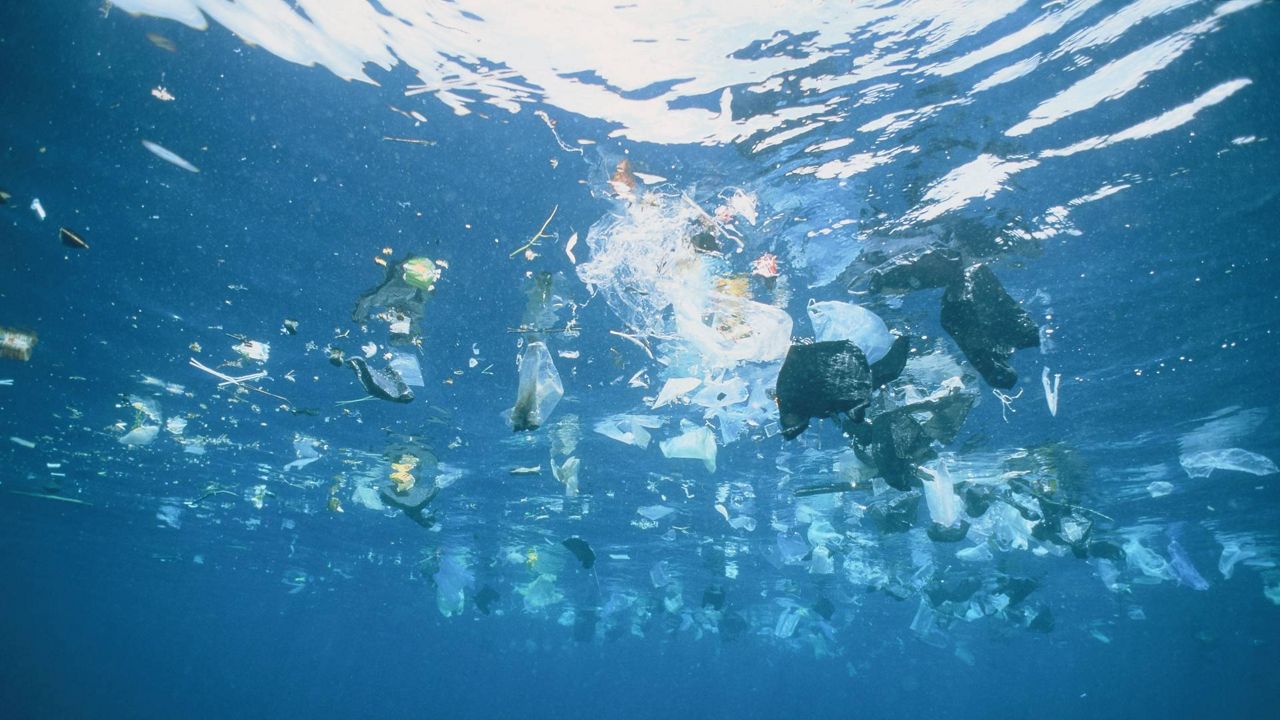SACRAMENTO, Calif. — California is getting serious about tackling plastic waste.
Following last year’s failed attempt at passing a wide-ranging law that would have held packaging producers responsible for the waste they generate, a group of eight lawmakers has joined forces to introduce a legislative agenda that addresses component pieces of a growing problem.
Plastic production is expected to double over the next two decades, according to the Ellen MacArthur Foundation, yet U.S. plastic recycling is stuck at a meager 9%.
“Plastic waste is a global threat to our oceans, marine life, natural resources, and public health, but it’s also hitting regular folks who are being asked to pay more and more through trash pickup rates to put patches on our broken waste management system,” said Sen. Ben Allen (D-Santa Monica), who serves as chair of the California Senate’s Environmental Quality Committee. “It’s going to take a coordinated, multi-faceted approach to begin to address this urgent financial, health, equity, and environmental challenge.”
The 2021 Legislative Plastics and Waste Reduction Package Allen is leading includes 12 separate pieces of legislation tackling everything from recycling and microfiber waste to food service ware and bottle return programs.
Among the bills is a reworked version of SB 54, the Plastic Pollution Producer Responsibility Act Allen co-authored that failed in the legislature last year. The revised bill requires producers to reduce waste by “right-sizing” their packaging and shifting to reusables wherever possible and also mandates that all disposable packaging and food service ware be truly recyclable or compostable by 2032.
SB 54 is supported by many of the same lawmakers who are introducing their own waste reduction bills this legislative session, including Assemblymember Steve Bennett (D-Ventura), Assemblymember Lorena Gonzalez (D-San Diego), Assemblymember Sydney Kamlager (D-Los Angeles), Assemblymember Wendy Carrillo (D-Los Angeles), Assemblymember Laura Friedman (D-Glendale), Sen. Scott Wiener (D-San Francisco), and Assemblymember Phil Ting (D-San Francisco).
In addition to SB 54, Allen introduced a companion bill in February that calls for Truth in Labeling Recyclable Material. SB 343 is designed to reduce consumer confusion about which plastics are recyclable by building on the state’s Truth in Environmental Advertising law. It would prohibit the use of the word “recyclable” on products that are not in fact able to be recycled and would also ban the use of the chasing-arrows symbol that many consumers rely upon, oftentimes erroneously.
Part of Tuesday’s legislative package introduction includes a new California Buy Recycled bill (AB 649) that would require state agencies to follow the same minimum recycled content standards in their procurement practices as private industry to help grow the market for recycled-content products. A new Recycling Export Reform bill (AB 881) seeks to close a loophole that allows the state’s mixed plastic exports to be deemed recycled even when they are landfilled, dumped, or burned.
"AB 881 provides a real solution to make sure we’re being honest about how our plastic waste is disposed and whether it’s truly recyclable," said bill author, Assemblymember Lorena Gonzalez.
Curbside recycling in the U.S. currently recovers only 32% of available recyclables in single-family homes, according to the 2020 State of Curbside Recycling report from the nonprofit group, The Recycling Partnership. What is collected for recycling has wildly varying rates of actually being recycled because it isn’t cost effective or is too contaminated or lacks a buyer. Just 27% of glass, 16% of paper packaging, and 9% of plastics are recycled, according to the U.S. Environmental Protection Agency.
Recognizing that recycling alone can’t solve the growing problem of plastic waste and its negative effects on the environment, Assemblymember Richard Bloom introduced legislation to address microfiber filtration in state and commercial facilities. Microfibers are the plastic particles that wash off synthetic clothes and other products when they are cleaned; they contribute as much as 35% of the primary plastic that ends up in oceans because most wastewater treatment plants can not filter them.
According to the World Wide Fund for Nature, human beings consume 1,769 tiny plastic particles and fibers every week.
AB 802 seeks to identify the best available control technology for microfiber filtration and would then require state agencies, as well commercial and industrial facilities, to adopt them.
In addition, AB 622, from Glendale Assemblymember Laura Friedman seeks to reduce the amount of microfibers that end up in the natural environment by requiring all new washing machines sold in California to include a microfiber filtration device by 2024.
“Plastic is everywhere and has become one the world’s most urgent environmental challenges. We have gone way too long without action, and it’s time to change that,” Assemblymember Friedman said. “California can lead in the fight against microplastic and fiber pollution by setting standards that other nations and states will follow.”
It’s been two years since the state banned restaurants from automatically providing plastic straws to customers, allowing them only when specifically requested. Now a companion bill seeks to reduce unnecessary food service ware. AB 1276 would expand the state’s plastic-straws-upon-request law to include other single-use food accessories and would require reusable food service ware for on-site dining at certain restaurants.
“The COVID-19 pandemic has increased takeout and food delivery, which restaurants are relying upon to stay afloat. However, the use of disposable food accessories like plastic forks, spoons and knives, has led to a rise in single-use plastics and waste,” said AB 1276 author, Assemblywoman Wendy Carrillo. “AB 1276 will build on California’s existing efforts to combat waste from single-use items by ensuring food and beverage accessories are provided only upon request to customers.”
In decades past, customers who bought soda and beer in bottles returned them to the stores where they were purchased so they could be reused and refilled. Under a new Returnable Beverage Bottles bill, called AB 962, refillable bottles could flow through the state’s Beverage Container Recycling system, allowing them to be washed and refilled by beverage producers instead of crushed for recycling.



